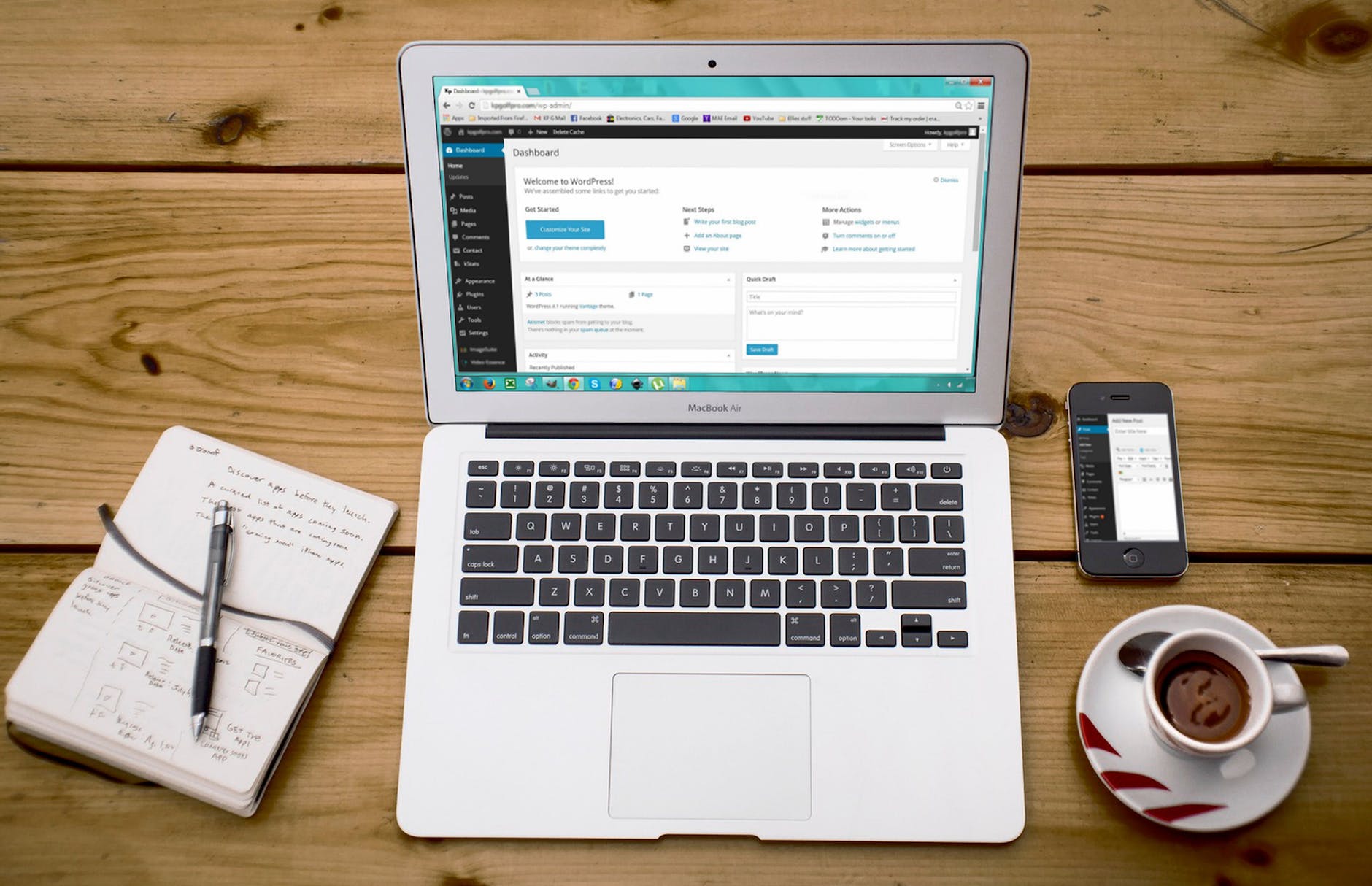For the past 15 years or so, I have hosted and maintained a WordPress website. Why? That’s an excellent question, and the answer is… I’m not entirely sure.
I’ve had a few half-decent posts, which is debatable, considering I’m probably averaging one post per year. I’ve also maintained a portfolio under the same site and posted multiple videos and quotes that I find inspirational. So, not too much to brag about! However, during this time, I’ve also created around 8 different bespoke WordPress themes, experimented with multiple premium themes (previously Divi), designed various logos, and re-organised content a million times. Let’s just say I’ve learned a lot by experimenting with the code/scripting behind the platform to create something rather than use it for its intended purpose.
Exposure is not a big deal. As you can imagine, I haven’t received many subscribers due to the lack of activity, but this doesn’t concern me. I’m currently concentrating on creating a workflow that encourages me to write and practice writing.
So, why not WordPress anymore?
Well, WordPress, after 15 years, is… still very WordPress. By this, I mean it’s still based on the same fundamental principles as it was over a decade ago. This isn’t a massive issue, I mean, it’s served the platform well, and it’s still the most used CMS on the web, not to mention it’s open source, which I’m a personal fan of.
Assessing cost

Firstly, cost. Running a website can be costly. I originally paid for web hosting and downloaded a copy of WordPress so I could tailor it to my needs. This was fun initially, and I learned a lot, but as mentioned, I never really focused on content creation. The web hosting was initially cheap, but the performance was slow. Eventually, I wanted to host more than one website, so I moved to a better hosting company which was more reliable and allowed me to host unlimited websites, but ultimately this cost more. I was ready to downsize and save some pennies, so now seemed like a good time to look outside WordPress and see what I was missing.
Becoming bloated and uninspiring
WordPress can feel… heavy. Simply moving between posts and pages was starting to feel sluggish most of the time. This could be due to the web hosting performance and the size of resources being loaded, but to be honest, it just feels like old tech.
I also need to be inspired to use the tool. This is a big one for me, and I’m finding WordPress fairly underwhelming and uninspiring these days. My seeming inability to stop dabbling in design and layout demands something where I can write and publish easily and without distraction – so less will definitely be more for me.
I’ve changed
Over time I’ve changed, both personally and professionally. My interests have changed. My passion for dabbling with code has lessened, it’s not entirely gone, but it’s definitely faded, partly due to my career, which is now more managerial and leadership-based. Also, I find staying on top of the latest coding languages challenging in today’s fast-paced technological world. Honestly, it frustrates me that I cannot stay on top of it. I’m more aware of what I want to do or, in this case, not do. I’m looking for a less is more approach to blogging.
What were my options?
Well… I’ve been trialling and experimenting with a few things.
Firstly, I was drawn to Ghost, a super quick and simple website for creators. I tried this for a month, and the site’s speed was incredible, which impressed me. I thought this would be the clear winner, but I soon found there were little things I couldn’t do, and the lack of features on the site started to annoy me. Plus, the search was far from great IMO. The USP of this platform and pricing model is based on subscribers, and there was a real emphasis on subscribing to posts. I didn’t feel this was necessary, so it started to feel like the platform wasn’t for me. The speed, though, was quick, and it felt great to use.
I also looked at Substack, which I’ve seen others use in the Higher Education Edtech game, but similar to Ghost, it seemed to be geared around subscriptions, which wasn’t a primary driver for me. If I had to choose between these two, it would be Ghost.
Going a little left field, I experimented with Notion, a tool I’ve been using for work and transforming a set of pages into my website using Super.so. This seemed like a great idea and utilised a tool I’m already using, and the simplicity was a joy. Super.so was great for making the set of pages into a native website, but I soon became frustrated with creating a blog site using these services.
Ultimately, all the options I assessed so far would cost more and provide me with less. So finally, to remove some chaos, I nearly reverted back to WordPress, but this time hosting on their SASS .com solution, but… URLs… U-R-L’s. I’m super picky with my URLs. I want them short and straight to the point; wordpress.com insisted on URLs with the publish date in them, whereas hosting WordPress yourself offered more freedom unless I was willing to pay more. So, while this sense-check was valuable, I gained more knowledge of what’s on the market. I was being led back to my current setup but forcing me to think about making some tweaks to improve the situation.
Doing a complete 360

Feeling a little like Liz Truss and mini-budgets, I have done a complete U-turn on all my research. My search for the holy grail would ultimately give me some of what I wanted but cost me more. Ghost, Substack, Super.so, and WordPress hosting were more costly options, but I would have felt too restricted.
Rethinking what I need
I have decided to streamline and go back to basics. Previously, I was massively overcomplicating the site’s structure with a blog, landing page, portfolio and capturing CPD activities. Now, I’ve moved to a new .blog domain, I’m embracing the blog element, and I’ve removed all other content, so I can focus on what matters to me, a focus on writing and a space to practice.
I’ve moved to a cheaper but what appears to be a faster web host and reduced the number of plugins, which has definitely improved performance.
I’ve also taken inspiration from my research into Ghost and dabbled with the WordPress theme (without too much code) to meet my simpler UI aspirations. I’ve moved away from the Divi WordPress builder, which was overkill for my needs, and started using WordPress’s new template editor, which, albeit fairly restrictive, stops me from dabbling too much in the areas others aren’t concerned with.
To conclude, although this was originally an exercise to move platforms (which has obviously failed), it has met the objective: to create a space for me to write and practice the art of writing. There is nothing against any of the platforms I’ve mentioned here; they all have their merits, but WordPress will do just fine for me for now.


